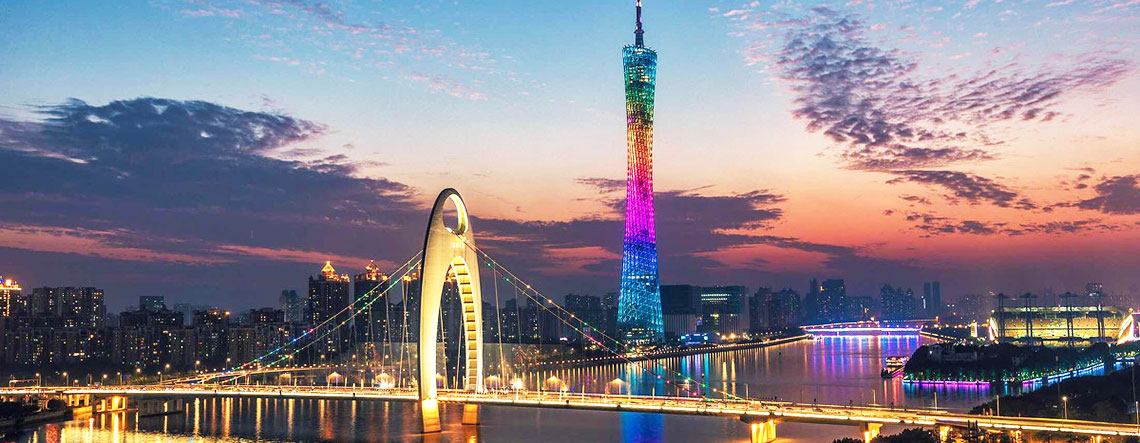Guangdong province is located in southern China and is renowned for its vibrant culture, industry, and cuisine. This region has much to offer visitors interested in learning about Chinese history, traditions, and way of life.
Prosperous Ceramics Industry in Foshan City
Foshan city is well-known for its long tradition of craftsmanship, particularly in the field of ceramics manufacturing. For centuries, skilled artisans have produced high-quality ceramic wares like pottery, porcelain, and furniture in this region. Today, Foshan remains a major industrial hub, with many factories specializing in ceramics, aluminum production, and furniture making. Visitors can tour workshops to observe talented artisans at work and purchase unique handicrafts directly from the source.

Rich Cantonese Culture in Guangzhou and Beyond
While Guangzhou city is commonly considered the epicenter of Cantonese culture and cuisine, some argue the surrounding region of Foshan better preserves traditional Cantonese traditions. Both locations offer insight into language, food, performing arts, and way of life distinct from other parts of China. In Guangzhou, famous chefs from the town of Shunde introduce visitors to the region’s incredibly flavorful dim sum, seafood dishes, and tea culture. Meanwhile, Foshan retains practices with deeper local roots free from outside influences.
Exploring the Natural Splendors of Jinan
A few hours north by high-speed rail lies the charming city of Jinan, nicknamed the “Spring City” due to its abundant natural springs and lush greenery. Scenic spots like Baotu Spring, Daming Lake, and Qianfo Mountain showcase Jinan’s breathtaking landscapes and historical architecture. Baotu Spring in particular inspired many great poets and artists over the centuries with its crystal clear waters flowing through bamboo and ancient pagodas. With a more moderate climate compared to coastal Guangdong, Jinan offers respite for travelers seeking nature, culture, and slower pace of life.
Marveling at Guangdong’s Mix of Old and New
Nowhere is Guangdong’s blend of tradition and modernity more evident than in the bustling metropolises of Guangzhou and Shenzhen. Ancient temples, gardens, and colonial buildings stand amid soaring skyscrapers, world-class shopping malls, and tech innovation zones. In Shenzhen, a village just decades ago transformed virtually overnight into a global financial center known as China’s “Silicon Valley”. Meanwhile, Guangzhou fuses centuries-old culinary styles with hip new cafes and trendy nightlife districts. This dynamic interplay of heritage and globalization provides compelling insight into Guangdong’s past, present and future.
Discovering Lesser-Known Gems Off the Beaten Path
While Guangzhou and Shenzhen dominate headlines, lesser-visited cities within Guangdong province also offer rewarding cultural finds. The town of Shunde, for example, gives deeper context to Guangdong’s cuisine with culinary workshops, market tours and family-run restaurants. Further west, the city of Meizhou impresses with well-preserved ancient walled settlements, Taoist temples and Hakka heritage sites providing a authentic glimpse into rural Guangdong life. For adventurous travelers, exploring these oft-overlooked destinations provides memorable local experiences beyond the typical tourist routes.
Appreciating Guangdong’s Pride in Heritage and Innovation
A visit to Guangdong reveals a region fiercely proud of its distinctive identity yet embracing new ideas. Monuments throughout the province celebrate icons like the late reform leader Deng Xiaoping while start-up incubators foster the next generation of innovators. Guangdong successfully blends reverence for traditions with a entrepreneurial spirit—characteristics that have powered China’s economic rise. For those interested in China’s past, present and future, Guangdong offers a compelling window into the country’s diverse cultural tapestry and relentless drive to grow and prosper.

 How Long Did It Take To Cross The Atlantic By Sail In The 1700s?
How Long Did It Take To Cross The Atlantic By Sail In The 1700s?